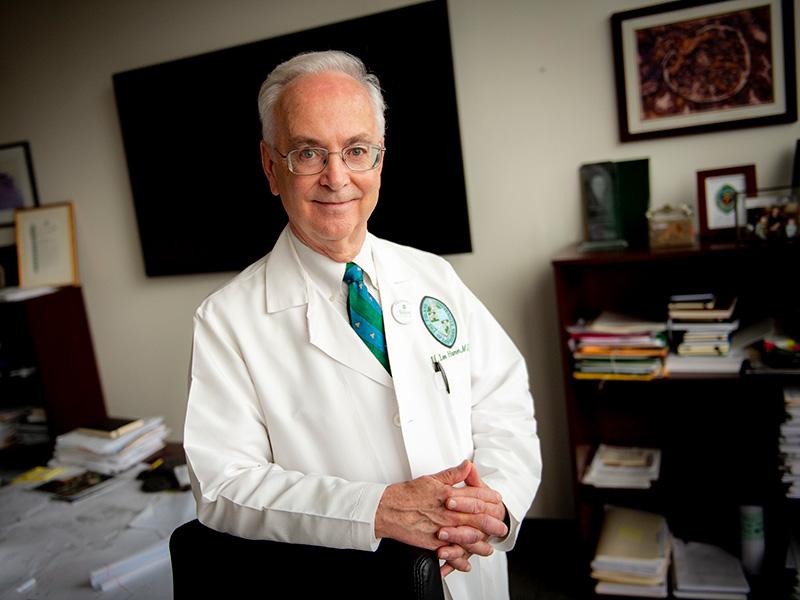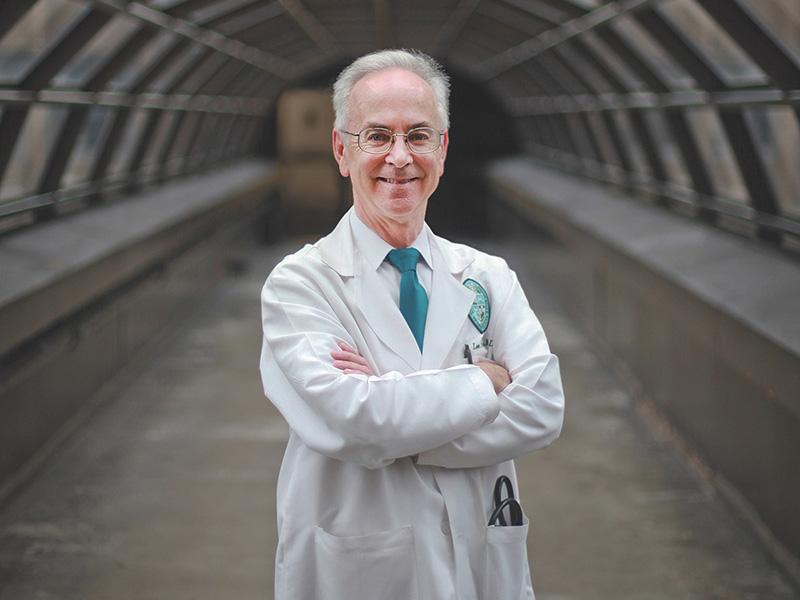Dean’s message: Together but apart, we can beat spread of coronavirus
Lee Hamm, MD, is dean of the Tulane University School of Medicine. His guest column originally ran in The Advocate on Sept. 23, 2020.
Together and apart. This seemingly paradoxical combination appears to be the best means of reducing the spread of COVID-19 in our city, state and on our college campuses. While remaining safe from COVID-19 requires us to stay at least 6 feet apart, confronting this global menace also calls us to come together, shoulder to shoulder — metaphorically, of course — to confront a common foe.
As a medical school dean, I have seen COVID-19 cases peak and fall in hospitals and neighborhoods throughout the city and state and within my own academic community. The driver behind the most recent, and hopefully continued, decrease has been comprehensive planning and the cooperation of institutions and individuals, cities and citizens.
At Tulane, we have established one of the most aggressive testing, contact tracing and isolation/quarantine programs in the country. The results have been remarkable. Headlines in this paper changed in one week’s time from “Coronavirus at Tulane appears to be driving jump in New Orleans cases” to “After spike, Tulane appears to have virus under control.”
Our current positivity rate is lower than both the city’s and state’s, but New Orleans and Louisiana, once global hot spots for COVID-19, have seen cases fall dramatically as well. This is, in large part, the result of safety protocols such as mandatory face coverings, bans on large crowds, the shuttering of bars and capacity restrictions on other businesses.
Tulane’s case count has certainly benefited from these city and state mandates, which took considerable political courage to enact and incredible support from our citizens to be effective. In turn, Tulane’s rigorous testing program has brought much good to our off-campus neighbors. As the city’s largest private employer, we are regularly testing thousands of students, faculty, staff and contract workers. This includes many local residents, who would not be tested as often or know their infection status if they were not part of the Tulane community.
Tulane Laboratory has also provided thousands of community-based test results for first-responders, nursing homes, incarcerated individuals and mental health patients to help reduce infection in these vulnerable populations.
In addition, we are hoping to assist the New Orleans Parish School Board in setting up a testing program for teachers and staff in order to create a safer environment in our schools. We plan to donate 6,000 tests to get this program started. Meanwhile, Tulane researchers continue to pursue new tests, treatments and vaccines, while its health care professionals treat COVID-19 patients.
No one is spiking the football when it comes to success in bringing our COVID-19 numbers down. Any positive case is a cause for concern and the move to Phase 3 combined with the eventual arrival of fall and winter weather to our area creates the potential for more spikes, more peaks and valleys and more worry.
But by continuing to work and plan together through a unified effort of political leaders and a continued commitment by students and citizens alike to protect themselves and others, we can hope to continue to see more falling case numbers. We can also become a model to the nation on how to safely reopen, how to revitalize our economy, preserve our way of life and care for one another. Americans are fiercely independent individuals, cherishing their freedom to seek their own way, apart from others. But, as these last few months have demonstrated, working together makes independence possible.


